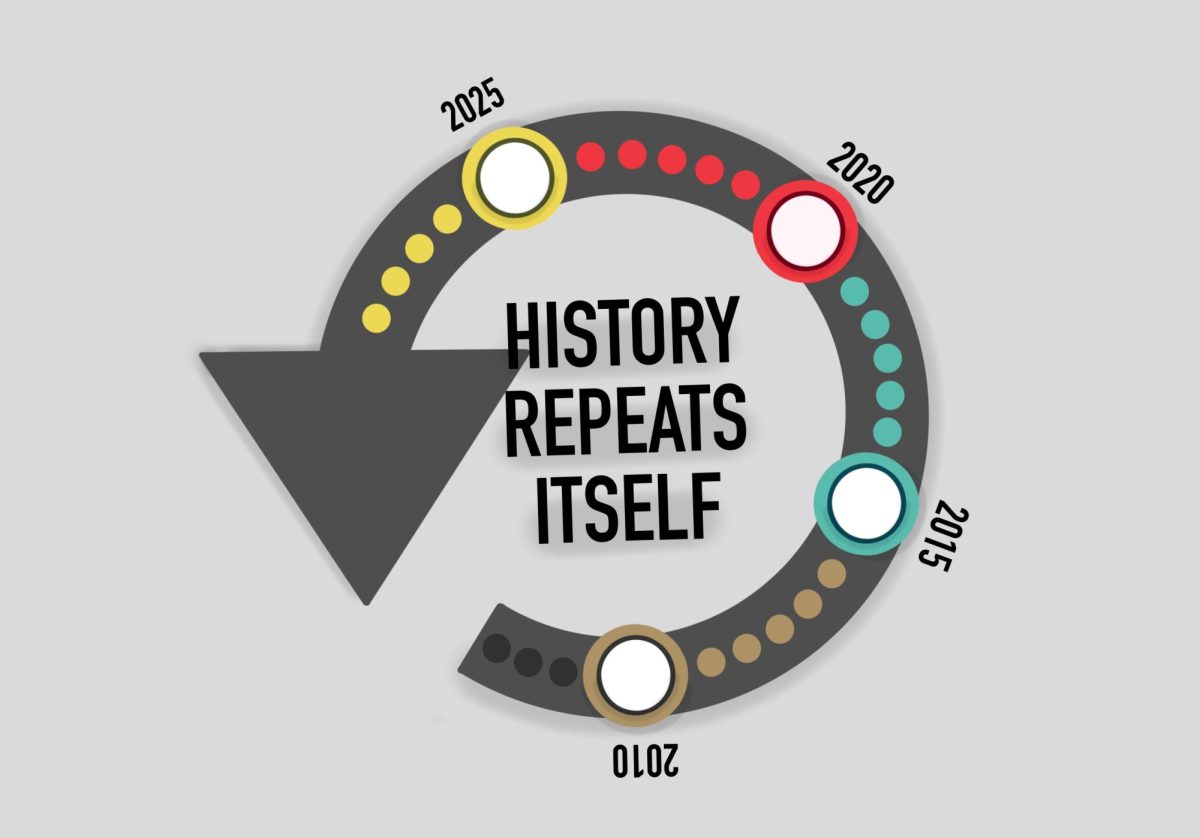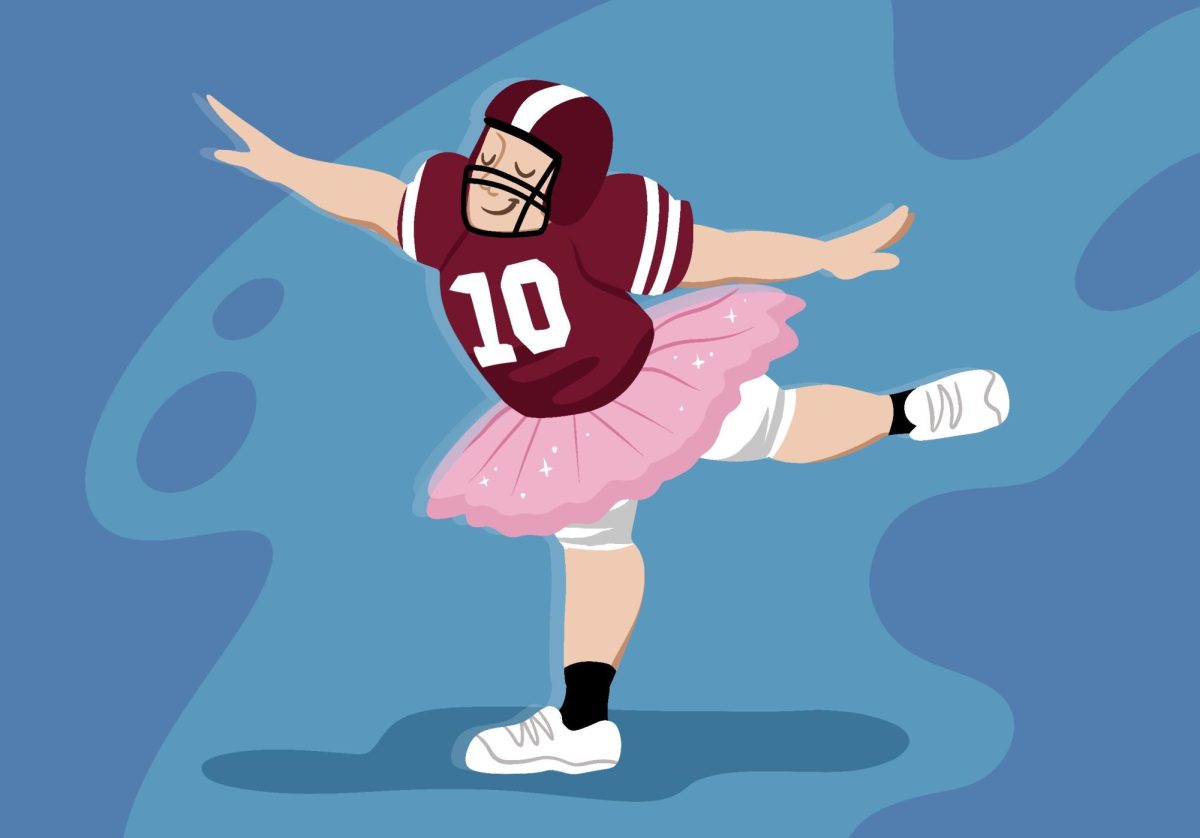Over the past two years, the Twin Cities have witnessed a series of high-profile police killings of Black men: George Floyd, Dolal Idd, Daunte Wright, Winston Smith, and now most recently, Amir Locke, a 22 year old who was fatally shot during a no-knock warrant search in downtown Minneapolis. The campus community has participated in protests for justice and accountability in the wake of these killings. Students have turned out in high numbers to citywide demonstrations and protests on their own campus. Yet, the University of Minnesota that they attend has not mirrored such sympathies for justice and change.
Initially, during the first days of the uprising, University President Joan Gabel promised to limit the University’s relationship with the Minneapolis Police Department (MPD), ending their contract for policing campus sporting events. However, she announced in June 2021 that there would be renewed collaboration between MPD and the University of Minnesota Police Department (UMPD). Instead of listening to the explicit demands of students to decrease funding for campus police and establish more transparent methods of accountability, Gabel has prioritized more visible police presence.
UMPD has also played a notable role in the suppression of protests during this time. Beyond initial confrontations with students during the uprising, where UMPD was deployed, the department was present on the night of Nov. 4, 2020, when over 600 protesters were arrested en masse on I-94. UMPD also participates in the West Command Task Force, a grouping of metro police departments created to respond to large protests. University Officers were present in the detainment of protesters in Brooklyn Center after the murder of Daunte Wright, protests which were heavily attended by University of Minnesota students. University administration could easily divest from this task force and end the collaboration of UMPD with other metro departments, as students have demanded at multiple campus protests, but they refuse to do so. As it stands, the campus community has no power to influence decisions about the police force that patrols their own campus and engages in arresting protesters in their city.
Given this lack of accountability, University community members should have the power to decide how they are policed, not just make recommendations to a University president and Board of Regents they didn’t elect.
This idea is not a new one. “Community control of the police” was a concept proposed by Black liberation groups during the 1960s. The Chicago chapter of the Black Panther Party developed it further by creating an outline for a council of elected representatives who would be able approve or veto police department policies and take action after police misconduct.
Today, organizations across the country are continuing to fight for community control of the police. Twin Cities Coalition for Justice 4 Jamar (TCC4J) is currently attempting to pass a charter amendment that would create a Civilian Police Accountability Council (CPAC), a board much like what the Black Panthers proposed. In 2021, a coalition of groups in Chicago were able to pass similar legislation creating a council of mayor-selected representatives with the power to draft and approve Chicago Police Department policy and nominate candidates for positions like superintendent.
The University should also implement a CPAC consisting of University community members who are policed by the UMPD. Members elected to the council would include students, staff, and faculty, as well as residents from nearby neighborhoods like Cedar-Riverside that the UMPD patrols. This council would have the decision-making power to investigate police misconduct, take disciplinary action, change UMPD policy, decide the UMPD’s budget, and approve or veto UMPD job applicants. A CPAC would give University community members full decision making power over campus policing, creating a true democratic process for police accountability that would set a precedent for other campuses.
When asked about CPAC in a recent interview, Joan Gabel responded by saying that only one small group of students resonates with this demand, and that in order to serve the whole campus community, administration must uphold shared governance. In saying this, she contradicts herself. Right now, there is no shared governance when it comes to policing. Administration has sole decision-making power. The only option available to the University community is to make recommendations which the president and Board of Regents may easily dismiss. Even the MSafe Implementation Team is ultimately advisory to the University president. If Joan Gabel truly wanted to uphold shared governance, she would give the University community the ability to directly elect their own police accountability council.
Students for a Democratic Society is collecting petition signatures for a referendum on CPAC to appear on the Spring 2022 All Campus Elections Ballot. Current University of Minnesota students can sign this petition at: z.umn.edu/cpac
This OpEd essay was submitted by Olivia Crull and Midori Van Alstine, members of the University of Minnesota’s Students for a Democratic Society.
This OpEd essay has been lightly edited for style and clarity.









Meat Eater
Mar 18, 2022 at 5:42 pm
there are ~50,000 students at U of MN -TC, when you get 25,000 signatures, then we’ll talk
Just because you make a lot of noise and get media coverage doesn’t make you the majority, you lost badly in the last election, which is what counts
praiseinterracialmarriages
Mar 15, 2022 at 3:36 pm
I see a positive value to having community control of the police. I was ignored and told not to contact UMPD in 1987-1989 when two students engaged in a two academic year campaign of stalking, harassing and violently assaulting me on campus. UMPD Captain Fran Gernhandt said, “Barry, you’re mentally ill. You bring on your own problems. Therefore UMPD will neither investigate nor arrest anyone on your behalf.” LT Metcalf tersely instructed me to never call UMPD again.
My mental illness was depression and anxiety, due to years of abuse at home and in schools, and because parents, until 1979, and school authorities, did not come to my aid. My diagnoses were similar to what former Minnesota Governor and U.S. Senator Mark Dayton experiences, as well as similar to what a number of U.S. presidents experienced. I was a campus leader for a while at the University. I served as an executive on the Minnesota International Student Association (MISA), and made friends and studied with the La Raza and the Hmong Student Association members. I was not antagonistic to anyone during my time on campus, although I experienced communication issues during the short period of time from the onset of medical problems until I saw the need for medical intervention; though I had a conversation with a Black student, named Marcus, about the Most Reverend George Stallings, a defrocked Catholic bishop who was kicked out of the Catholic Church for repeatedly bringing animistic rituals into his masses, violating Papal decrees.
Marcus believed that this amounted to racism. He was undone and mistaken. I countered that it had nothing to do with racism, but everything to do with running the Church in the way that tradition and Catholic values were of interest. Were the same rituals done by Whites, the response would have been the same. The student was incorrect and limited in believing that everything that impugned a Black person was discrimination against them because they were of a certain race. This sort of thinking is feeble and a poor indication of intellectual, social and spiritual development.
University of Minnesota medical student Son Nguyen told his brother Hai Nguyen of my diagnoses, as we lived in Centennial Hall dormitory; and I became a target of the younger Nguyen, who received an order of restraint from Harvard graduate, Hennepin County District Judge Sean Rice. Rice, a fellow honors student grad of top-ranked De La Salle High School (and a valedictorian) also had a mental health diagnosis and understood the nonsense which those of us with diagnoses experience from mediocre minds and hearts.
University of Minnesota Vice President of Student Affairs Marvalene Hughes gaslighted me in the presence of University of Minnesota attorney Nick Barbatsis, the older brother of a woman I dated in the 1980s. She pulled out her diagnostic manual to “diagnose” me in an effort to find a reason to get me off campus. I experienced frequent, turbulent and violent criminal assaults and harassment, and have been experiencing severe repercussions of this violence and neglect for decades, despite efforts to move past it.
The effect of the bigotry on campus by UMPD, Marvalene Hughes, and the failure of Director of EEOAA Patricia Mullen to step in, were clear indications of ableism, prejudice against people with a known or believed mental illness, and another example of feeble thinking and cognitive dissonance by employees of the University of Minnesota, and only two students of the hundreds I had known who had biases against people with mental illnesses due to their ignorant or stupid understanding of the vast array of people with diagnoses who are often quite competent and often pleasant when not being abused.
UMPD was wrong to ignore me, and my grades dropped so low that I did not qualify to get into law school or public affairs school with a grade point average of 2.43 at graduation, though my performance at schools in Norway and Costa Rica, where I had to learn the languages of those nations to study, were in the very good to excellent range. There, I was not abused, and I rose to the occasion of studying and again enjoying friendships with others.
With regard to Amir Locke, he had a gun at his bedside and was about to shoot the intruders. The intruders, MPD officers, were authorized by a Hennepin County Court judge to enter the abode. They were not intending to shoot anyone unless they became a target of someone with a gun, knife, or other weapon. Had Locke not had a gun, he would likely be alive today.
Not every police killing of a Black person equates with hostilities toward Blacks. They sometimes equate with a sense of danger by the person before them, regardless of their race. Certainly, I understand the bigotry of some officers. A surgeon friend of mine from Africa was harassed by former MPD officer Derrick Chauvin a year before he murdered George Floyd.
Police must survive in a very hostile and dangerous environment, and they must take precautions to protect their lives. They, too, have spouses and children, parents, siblings and cousins who adore them. Ignoring the difficult situations in which they find themselves is, itself, a form of cognitive dissonance, naivete and an indication of anti-police hostility and discrimination which is made loud by citizens who tend to support the underdogs of the community, in this case: Blacks.
The African American community desperately needs help to develop stronger confidence that they can live without engaging in illegal activity or associating with people who are engaging in such activity. This is not a blanket statement of all Blacks, but a clear indication that a significant subset within the community are engaged in criminal activity which brings attention to them by law enforcement authorities.
A clear understanding of biases against certain cohorts in society notwithstanding, I have engaged in a degree of research to learn that even former slave women became very affluent and had millionaire status despite racism in the southern U.S. and elsewhere among some people in the United States.
Black friends, neighbors and advisors of mine have been physicians, surgeons, a Minnesota Supreme Court Justice, graduate students and attorneys. One of my friends in the 1970s was a vice president of Hallmark Greeting Cards.
The belief that Blacks are always the underdogs is somewhat representative of a failure to understand the vast realities found in our society by people who like to complain about poor treatment of people as a given, when not all people of a certain class are singled out and fraught with discrimination against them.
There are those from the African American community who do quite well. This, however, is not talked about in mainstream media, as it doesn’t sell newspapers — unless talk about sports and entertainment personalities. While I believe that Blacks are subjected to poor treatment and discrimination, the reality remains that those who organize themselves, assiduously assert themselves toward advancement, and invest their time and other resources wisely, lead productive, sociable and happy lives.
While the killing of the men who were mentioned in this article were tragic and might have been avoided, painting all of them as completely innocent of actions which led to their deaths is not always accurate. Living with guns at one’s bedside may be an indication of their belief or understanding of the need to protect oneself against criminal behavior, and may also be an indication of unhealthy paranoia based on the environments in which they were brought up. However, it is again important to point out that not all law enforcement actions involving African Americans are met with violence.
I am speaking as one who has adopted Black children from Africa, and as one who currently lives at Riverside Plaza Apartment Complex on the West Bank in the Cedar Riverside Neighborhood of Minneapolis, Minnesota, where I have resided for twenty-nine years since my junior year at University of Minnesota. The population of people from Somalia is so high here,. of the 4,000+ tenants, that it has been nicknamed “Little Mogadishu,” given that more people from Somalia live here than any place outside of the capital city of Somalia.
I am not antagonistic to Blacks, and several of my East African immigrant neighbors and friends asked me to run for elected office given my history of advocating for them as a member of local boards of directors, committees and councils. I am not interested in running for office, and don’t need the headaches of that kind of work.
However, it would be unfair to paint me as a racist, given my lifestyle of mostly living among non-Whites for a majority of my 60-years of life and getting along with virtually all people who come before me as a neighbor, friend, coworker, student or global citizen. However, I have been physically assaulted by angry, violent and chemically inebriated Blacks and Asians, though I care for others from these races as a friend and as an educator.
I did a little work for current Minnesota State Representative Mohamud Noor of House District 60B; and the last time Member of Congress Ilhan Omar and I met, she came to me with her arms outstretched, saying, “Barry, my old friend, it’s nice to see you again,” and embraced me. I will not, however, be voting for Ilhan again given poor service I received from two of her staff members, and given her failure to follow up on several calls and correspondence which I presented detailing discrimination against men — which the mainstream press never talks about. While Ilhan has a genius for certain things, she is not always the most competent individual and seems to need to have everything her way in bills before she votes for them, despite the good that the laws and programs would do were they passed in the absence of her demands.
In conclusion, while the UMPD must be taught a lesson about service to the community, not all officers are bad people. Moreover, in my opinion, regardless of the lack of wisdom in using a no knock warrant, I hold that the officer who shot and killed Amir Locke was reasonable and righteous in his decision to shoot. Locke created himself as a hostile and dangerous subject who was going for his gun. Despite the happy and innocent faces of him presented in news stories about him prior to his expiration, he presented as a dangerous subject who might have killed or wounded officers.
In the world of gunplay, it is “kill or be killed.” Locke likely wouldn’t be dead were he not in possession of a handgun in his hand and ready to shoot officers executing a lawful warrant.
lostoncampus
Mar 15, 2022 at 3:26 pm
1000 huh? I hope you get what you want- and the criminal take over campus and rob all you younf and dumbs blind. You get what you wish for- I hope !!!
PS- when you grow up, youl understand its the CRIMINAL whos responsible for police repsonding- STOP TAKING THEIR SIDE
Mira Altobell-Resendez
Mar 14, 2022 at 12:15 pm
It’s the same thing! We got to 1000 signatures to get onto the referendum ballot, so I’d say it’s going swimmingly :^)
lostoncampus
Mar 14, 2022 at 12:08 pm
Hows that Defund the police movement doing?